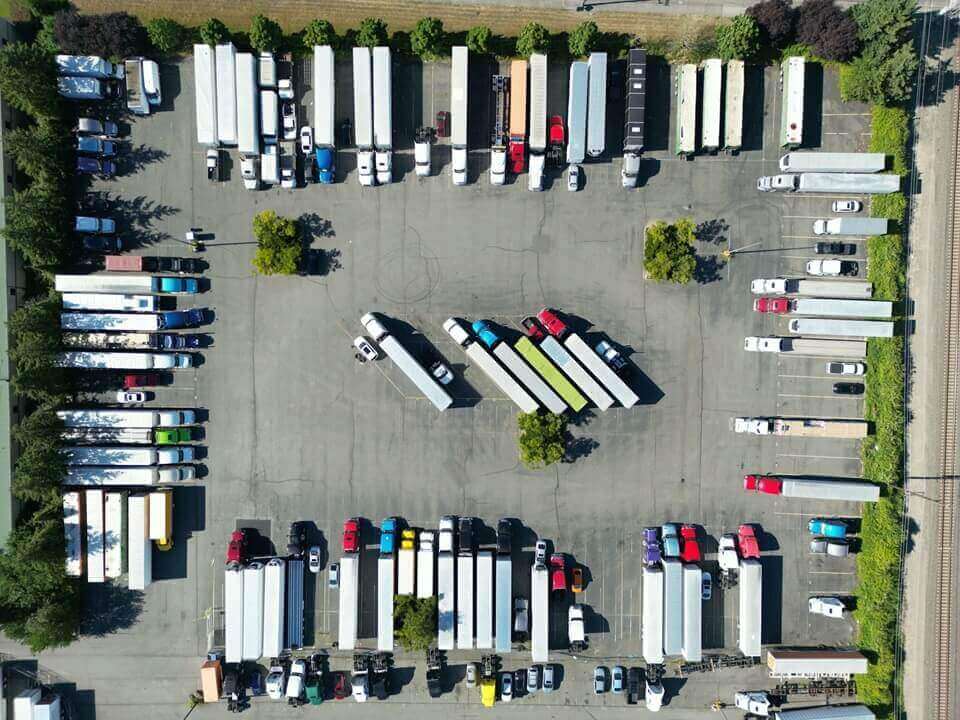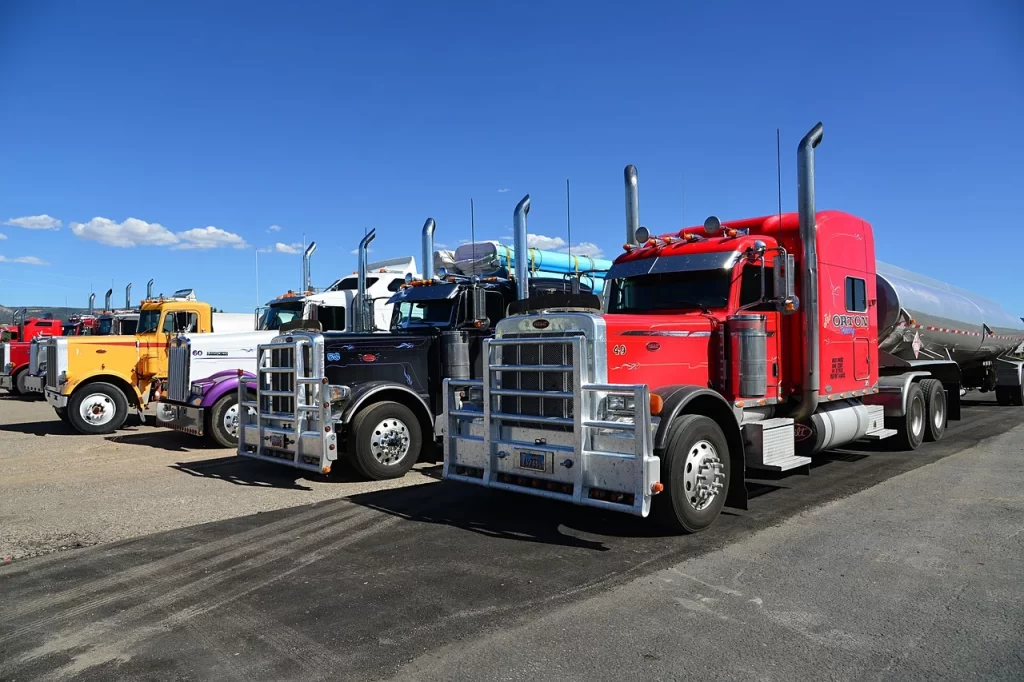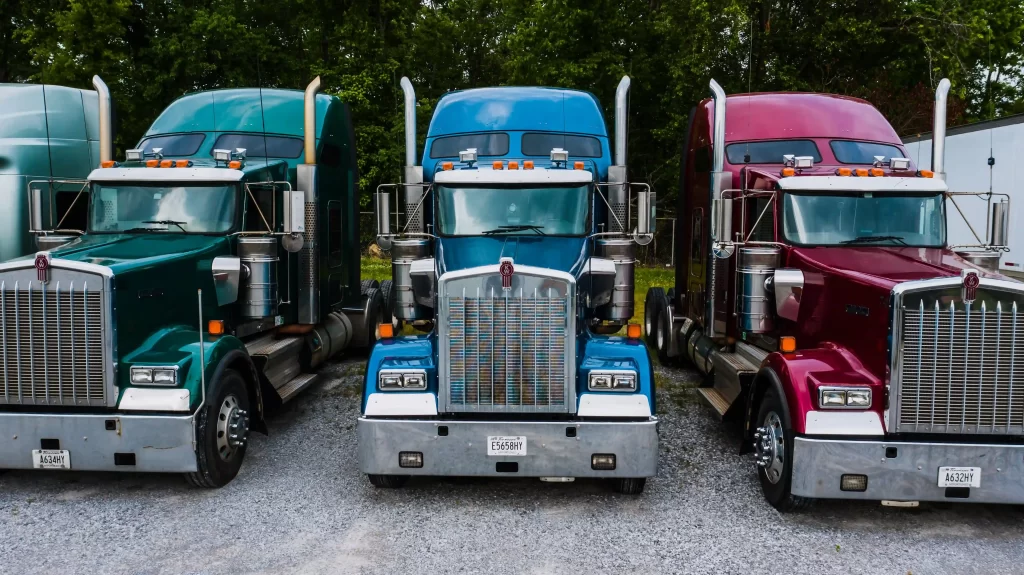
In May of last year, a semi-truck crashed into a minibus full of farm laborers. The minibus was parked on a highway shoulder behind a third semi-truck that was also parked illegally. The farm laborers stood little chance as the almost unstoppable force of the moving semi-truck careered into the almost immovable object of the parked semi-truck, with the minibus acting as an unfortunate and far smaller buffer.
Seven souls were lost.
A few months later, in July of the same year, a similar tragic incident involving a Greyhound bus unfolded as it turned into a rest area exit ramp under the darkness of night. The driver failed to spot the three semi-trucks using the shoulder as a rest area before crashing into them at speed.
Four souls were lost.
Rising Concern
These two incidents are by no means isolated. They highlight a tragic, growing phenomenon that is increasing each year in which fatalities involving parked or stationary semi trucks on highway shoulders and exit ramps are escalating, and so are the fatalities.
The tragedy is also not restricted to accidents alone. There has been a rise in robberies and assaults on parked truck drivers over the last decade or so, beginning with the tragic death of Jason Rivernburg, who was murdered while resting at an abandoned gas station in 2009.
Jason was murdered by an opportunist thief for the princely sum of seven dollars.
These events are not mere coincidences, either. The phenomenon of random tragedy with parked trucks didn’t exist barely 15 years ago, but it seems to be something of a regular occurrence these days. So what is the cause? Why, suddenly, are there increased numbers of accidents on shoulders and exit ramps and a rise in violent incidents? In short, why has the simple, everyday practice of truck parking become such a potentially dangerous endeavor?
You may be surprised to know that the underlying factor behind these events lies with the rise of e-commerce and changes in driver ‘hours of service’ regulations. There are other contributing factors, but they are the two prime motivators behind the truck parking crisis.
Through this article, we shall explain why. But first, we need to explain the current situation regarding the truck parking crisis.
The Current Truck Parking Climate
In the event that the issue escaped your attention, a terrible situation has been unfolding throughout the transport industry, concerning truck parking. Or rather, the lack of truck parking spaces available throughout the entire country.
The stats are quite jolting. According to official studies and various reports, there are approximately 350,000 truck parking spaces available for around 3.5 million trucks. If that fails to jolt you, just take a moment to ponder the numbers: more than three million trucks have nowhere to park when they are out on the road.
We are talking about huge, heavy, multiple-wheeled trucks here, after all, and not Mini Coopers. You can’t just park these things anywhere. Trucks need suitable parking spaces as part of their day-to-day life on the road, yet for every ten of them in existence, just one parking space is available. You can see how that might be a problem.
Truck Parking Crisis – a Widespread & Evident Problem
To grasp the seriousness of the issue, you don’t need to read official reports or digest complex studies, although plenty of them have been published recently. You just need to get out and take a look at America’s highways. If you are looking for it, you will see it everywhere, and once you see it, you can’t stop seeing it.
Entry and exit ramps are often nose-to-tail with semi-trucks parked through the night and at random times throughout the day. Rest areas are no different. Truck stops have become an absolute nightmare, with every square inch of truck parking seemingly taken while weary, frustrated drivers repeatedly circle the lot, hoping and praying for a space to become available.
Store parking lots like Walmarts used to generously accommodate truck parking (unofficially, at least), but with the number of trucks growing each year – owing to greater demand for road logistics and a regulatory change in driver hours – they have grown tired of doing so and have clamped down. So have casinos, malls, and depots.
There are simply too many trucks and not enough spots to park. As a result, the transport industry faces serious challenges as drivers are forced to park on exit ramps, dark urban lots, underpasses, and shoulders.
Track Parking Shortage – What Caused the Issue?
The surge in e-commerce is a large factor behind the truck parking crisis. With more goods being ordered online, the demand for road logistics has increased immeasurably, leading to an increased number of trucks on the road.
Additionally, changes in driver ‘hours of service’ regulations (particularly the switch to electronic logging in 2019) have tightened compliance, making it harder for drivers to find parking within the mandated rest times. Before the new regulations were introduced, drivers would take a more casual approach to hours or service regulations by maintaining a written log. This enabled greater flexibility when mandatory breaks were due.
Now, very specific hours or service rules stipulate that drivers must take fixed breaks at certain periods throughout the working day or face quite heavy fines for not doing so. The digital system has taken away all flexibility, meaning they must strictly adhere to the scheduled rest periods, regardless of the availability of safe and legal parking spaces. This far more rigid approach often forces drivers to park in less secure or legal areas, increasing the already pressing issue of truck parking shortage and safety concerns.
The government has been slow to react, with insufficient investment in the development of new truck stops and the expansion of existing ones. Investment has increased, but not at a rate that will come even close to solving the issue any time soon.
These factors combined have all contributed to the parking shortage, forcing drivers to resort to unsafe parking options. This scarcity of safe parking spots not only creates hazards on the road but also impacts the well-being of the truckers themselves.
The Solution

Frankly, and not to understate the issue, drivers need more truck stops and rest areas. The problem is, they are not getting them – or at least, they are not getting them fast enough. New truck stops and rest areas are being built, but only at a slow trickle. With over 3 million trucks without a convenient parking space, it will be decades before the shortfall is dealt with, if ever.
For the time being, the private sector is doing most of the heavy lifting. In particular, services like our very own Truck Parking Club have been accommodating truck drivers with convenient, accessible, readily available truck parking spots, courtesy of private commercial landowners acting as Property Members.
With parking areas ranging from a few hundred square feet to tens of thousands, landowners are renting out truck parking spots by listing their properties on the Truck Parking Club app.
In turn, drivers who require truck parking spaces can register with Truck Parking Club and browse for availability in any area before booking convenient truck parking at affordable rates.
It is a system that is working very well indeed, and is beginning to put a dent in the truck driver crisis. More needs to be done on a wider scale, however.
Join Truck Parking Club
If you are a commercial landowner with spare land available, you can now venture into the highly profitable business of truck parking almost immediately by listing your property with us.
By the same token, if you are a truck driver in need of reliable, convenient parking, go ahead and register now, and never resort to dangerous highway exit ramps, shoulders, or sketchy urban areas ever again.
The information published herein is for general informational purposes only. Truck Parking Club does not make any representations or warranties about the completeness, reliability, legality, and accuracy of this information. Any reliance placed on such material is strictly at the user’s own risk. Truck Parking Club shall not be responsible for any losses or damages incurred in connection with the information published herein.





